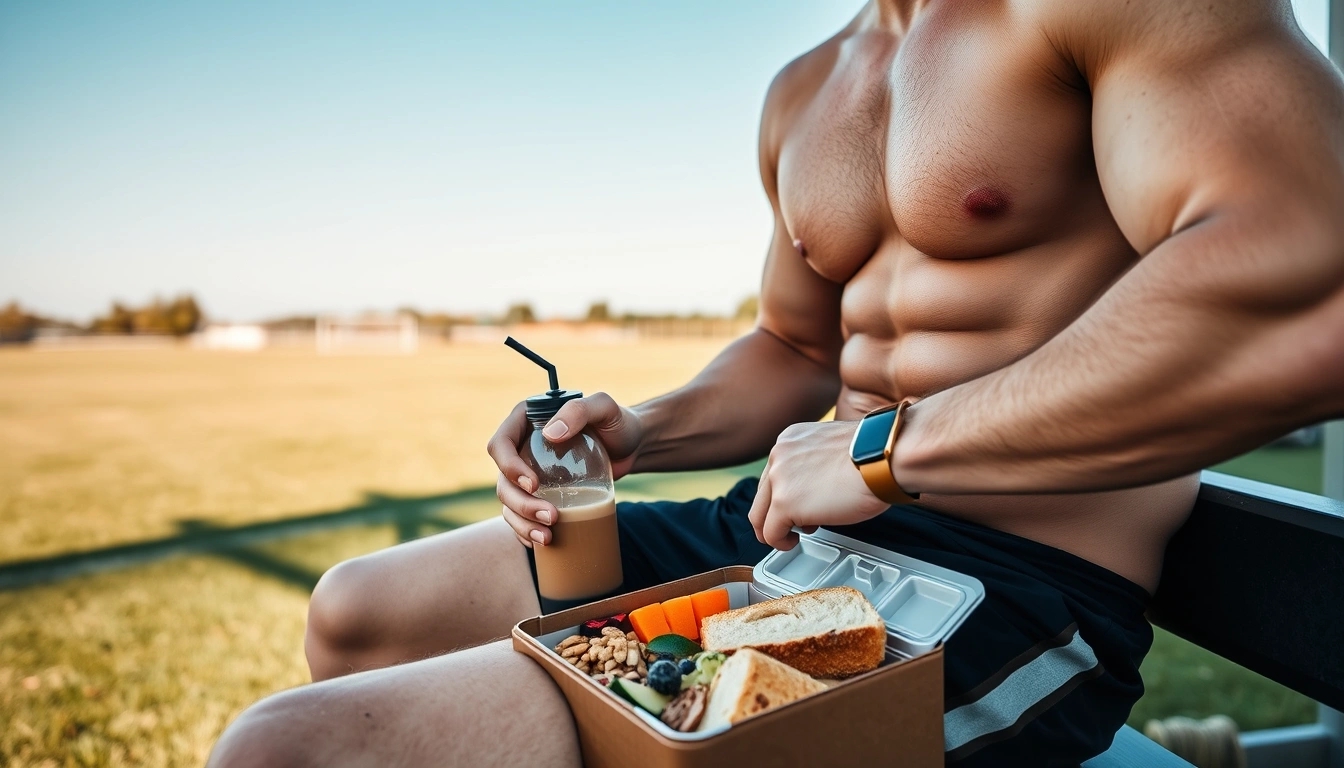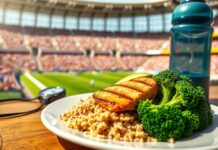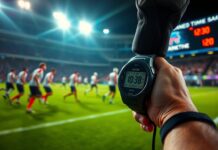Alright, lads and lasses, let’s get one thing straight: Sunday League football isn’t just about showing off fancy footwork or scoring that screamer. It’s also about how you bounce back after the final whistle. You’ve just spent 90 minutes chasing the ball, gasping for air, and probably cursing your mate who missed that sitter. Now, the real magic happens in the kitchen (or, let’s be honest, the nearest chippy). So, if you want to avoid hobbling around like a zombie the next week, pay attention to these no-nonsense post-match nutrition tips.
Why post-match nutrition matters
You might think, “Eh, I’m knackered, I’ll just crash on the couch.” But hold your horses! What you shove down your throat right after the game can seriously speed up your recovery. Your muscles are crying out for fuel, and if you ignore them, you’ll be dragging your sorry self around the pitch next Sunday. Proper refueling helps replenish glycogen stores, repairs muscle damage, and keeps injuries at bay. Plus, it means you can actually enjoy your post-match pint without feeling like death warmed up the next morning.
| Benefit | Why it Matters |
|---|---|
| Glycogen Replenishment | Restores energy for your muscles |
| Muscle Repair | Fixes tiny tears from the game |
| Hydration | Replaces fluids lost in sweat |
Hydration: More than just water
Water’s great, don’t get me wrong. But after 90 minutes of running around like a headless chicken, you’ve lost more than just water. Electrolytes like sodium, potassium, and magnesium have taken a hike too. So, gulping down plain water might leave you feeling bloated or crampy. Sports drinks, coconut water, or even a homemade mix of water, a pinch of salt, and a squeeze of lemon can do wonders. Just don’t go overboard on the sugary stuff — no one wants to feel like they’ve swallowed a fizzy drink factory.
- Tip: Aim to drink at least 500ml within 30 minutes post-match.
- Pro tip: Avoid alcohol immediately after the game; it’s a recovery killer.
Carbs: Your recovery MVP
Carbohydrates often get a bad rap, but after you’ve been running up and down the pitch, they’re your best friend. Your glycogen stores are depleted, and carbs help refill them pronto. Think of it like refilling your petrol tank — without it, you’re going nowhere fast. Good options include wholegrain bread, pasta, rice, or even a cheeky baked potato. And no, a bag of crisps doesn’t count, sorry.
Protein: Repair and rebuild
Protein’s the muscle fixer-upper. It helps rebuild those tiny tears in your muscle fibers that happen during the game. But how much do you need? Well, you don’t need to chug a protein shake the size of your head. A modest 20-30 grams post-match is enough — that’s roughly the amount in a chicken breast or a couple of eggs. And if you’re vegetarian or vegan, beans, lentils, and tofu have got your back.
| Food | Protein Content (approx.) |
|---|---|
| Chicken breast (100g) | 31g |
| Eggs (2 large) | 12g |
| Lentils (100g cooked) | 9g |
| Tofu (100g) | 8g |
Timing is everything: When to eat
Here’s where many Sunday League warriors slip up. The post-match hour is your golden window. Aim to eat something within 30-60 minutes after the final whistle. Waiting too long means your muscles miss out on prime recovery time, and you might end up feeling sluggish or stiff days later. So, pack a snack or plan ahead — your future self will thank you.
Snack ideas that don’t suck
Not all snacks are created equal, and let’s be honest, no one wants to munch on rabbit food post-match. Here are some tasty, effective options:
- Peanut butter on wholegrain toast
- Greek yogurt with honey and berries
- A banana and a handful of nuts
- Hummus with carrot sticks
- Chocolate milk (yes, really!)
So, next time you’re wiping sweat off your brow and thinking about that post-match feast, remember: recovery starts with what you eat and drink. Ignore it and you’ll be the guy who’s always limping around the pitch. Nail it, and you might just surprise yourself with how fresh you feel come next Sunday.
Why post-match nutrition matters
Look, if you’ve just finished a Sunday League match and think you can just flop on the couch with a bag of crisps and call it a day, you might want to reconsider. Refueling your body after those 90 intense minutes isn’t just some fancy advice from fitness gurus—it’s the real deal that can make or break your next performance on the pitch. The body is a funny beast; it uses up a ton of energy, sweats out fluids and salts, and leaves your muscles crying out for repair. If you ignore that, you’re basically setting yourself up for a slow recovery and a less-than-stellar game next time around.
Let’s be honest, most Sunday League players have day jobs, families, and about a million other things on their plates. So, the idea of meticulously planning every post-match meal sounds like a chore. But here’s the kicker: it doesn’t have to be rocket science. Understanding the basics can seriously speed up your recovery and keep you fresh for the next kickabout.
| What Happens to Your Body During a Match | Why Nutrition Post-Match Is Crucial |
|---|---|
| Glycogen stores get depleted (that’s your muscle fuel) | Carbs help replenish these stores quickly |
| Muscle fibers experience tiny tears | Protein helps repair and rebuild muscles |
| Lots of sweating leads to fluid and electrolyte loss | Hydration restores fluid balance and prevents cramps |
Now, you might be thinking, “Yeah, yeah, but I’m just an amateur, not a pro athlete.” True, but even at the Sunday League level, your body still goes through the same physical stress. Skimp on recovery, and you’re basically inviting fatigue, soreness, and maybe even injury. Plus, if you want to show up next week and not feel like you’ve been hit by a bus, you gotta play the refuel game smart.
Here’s a quick list of what you really need to focus on right after the final whistle:
- Hydration: Water is good, but you need to replace salts and minerals lost through sweat.
- Carbohydrates: Your muscles’ favorite snack to refill energy tanks.
- Protein: The building blocks for muscle repair.
- Timing: The sooner you get this combo in, the better your recovery.
Trying to recover without these is like trying to drive a car with an empty tank. You might make it a bit, but you won’t get far. And if you’re wondering about the timing, here’s a little nugget: aim to eat something within 30 to 60 minutes after the match. This window is prime time for your body to absorb nutrients and kickstart repair processes.
Post-match Nutrition Quick Tips:- Drink 500ml water + a pinch of salt or sports drink- Have a banana or slice of bread with honey- Follow up with a protein source like yogurt or a boiled egg- Avoid junk food pretending to be “fuel” (looking at you, greasy takeaway)
To wrap it all up, post-match nutrition isn’t just some optional extra—it’s the secret sauce to keep you going week after week. Skip it, and you’ll feel it. Nail it, and you’ll be the one running circles around the opposition next Sunday. Simple as that.
Hydration: More than just water
Okay, so you’ve just finished a full 90 minutes of chasing the ball, dodging tackles, and trying not to trip over your own feet on the Sunday League pitch. Your throat feels like the Sahara Desert, and your first instinct? Grab a bottle of plain old water, right? Well, hold your horses there, mate. While water is absolutely vital, it’s not the whole story when it comes to post-match hydration. In fact, if you rely on just water after a game, you might be missing out on some crucial recovery magic.
Think about it: during a match, your body sweats buckets, losing not just water but also a cocktail of electrolytes like sodium, potassium, and magnesium. These little minerals are the unsung heroes that keep your muscles firing and your heart ticking smoothly. If you only rehydrate with water, you risk diluting your blood’s sodium levels, which can lead to that awful feeling of fatigue, cramps, or worse, hyponatremia (fancy word for low sodium). So, gulping down water is good, but replacing electrolytes? That’s essential.
- Sodium: Helps retain fluids and prevents dehydration.
- Potassium: Supports muscle function and prevents cramps.
- Magnesium: Aids in muscle relaxation and energy production.
Here’s a quick table to show what you lose during a typical 90-minute match and what you should aim to replace:
| Lost Substance | Approximate Amount Lost | Why Replace? | Good Sources Post-Match |
|---|---|---|---|
| Water | 1-3 liters | Rehydrates and cools body | Water, sports drinks, coconut water |
| Sodium | 500-1500 mg | Maintains fluid balance | Salted snacks, sports drinks |
| Potassium | 200-700 mg | Prevents cramps, supports nerves | Bananas, oranges, potatoes |
| Magnesium | 20-50 mg | Muscle relaxation | Nuts, seeds, leafy greens |
Now, I know what you’re thinking: “Great, so I need to chug a sports drink and eat a banana after every game?” Well, yes and no. Sports drinks can be handy, especially if you don’t have time to prepare a proper meal right after the whistle blows. But watch out for those sneaky sugar levels — some brands are basically soda in disguise. If you’re the DIY type, a homemade electrolyte drink (think water, a pinch of salt, a squeeze of lemon, and a touch of honey) can do wonders without the added junk.
Also, don’t forget that rehydration needs to start during the match, not just after. Sip fluids regularly, and if you’re sweating buckets, consider a drink that replaces those lost salts. Waiting until you’re parched is like trying to fix a leaky boat after it’s already sunk halfway.
Pro hydration tips for Sunday League warriors:- Start sipping water 15 minutes before kickoff.- Keep a bottle handy and take small sips during breaks.- Post-match, aim for 1.5 liters of fluid within the first hour.- Add some salty snacks or a potassium-rich fruit to your recovery routine.
So yeah, hydration is more than just guzzling water like a camel. It’s about balancing fluids and electrolytes to keep your body in top shape for the next game. Ignore this, and you might find yourself hobbling around the pitch with cramps, headaches, or worse, feeling like you’ve been hit by a bus. And nobody wants that, especially not on a Sunday.
Bottom line: Water is your best mate, but electrolytes are the secret squad backing up your recovery. Treat them right, and your body will thank you with better stamina, less soreness, and a quicker bounce back.
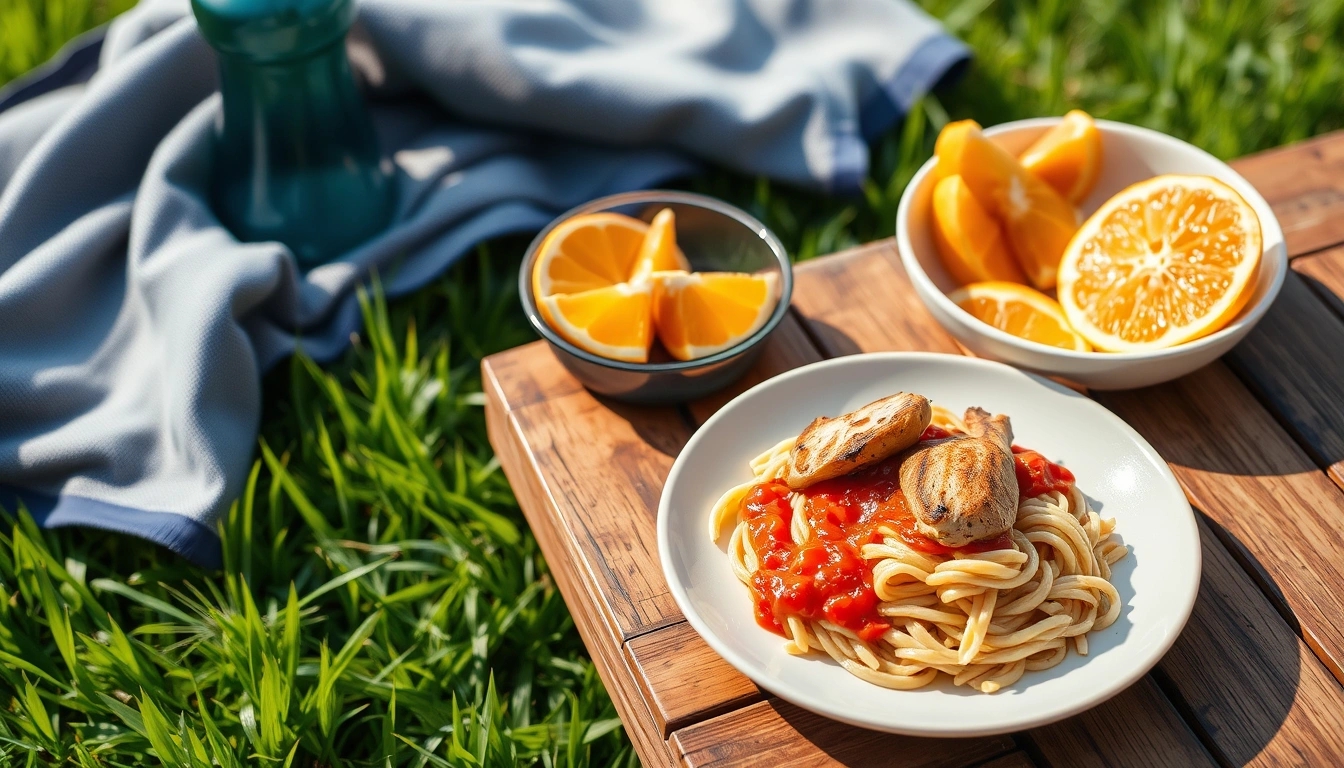
Carbs: Your recovery MVP
Let’s get real for a second—after you’ve just dragged yourself through 90 minutes of chasing the ball, dodging tackles, and probably cursing your own clumsiness, the last thing you want to do is obsess over what to eat. But here’s the kicker: carbohydrates are the true champions of your post-match feast. They’re the fuel your muscles scream for once the whistle blows, and ignoring them? Well, that’s like trying to drive a car on empty—just ain’t gonna happen.
You see, during the match, your body burns through glycogen, which is basically stored carbs in your muscles and liver. When those stores run low, your legs start feeling like lead weights, and your brain might as well be on a coffee break. So, stuffing your face with carbs right after the game is the quickest way to top up those energy tanks. Think of it as refilling your phone battery after a long day of Snapchatting—except instead of emojis, you get sprinting power.
- Simple carbs (like fruits, white bread, or sports drinks) are great for a quick glycogen boost.
- Complex carbs (think whole grains, sweet potatoes) take a bit longer to digest but provide sustained energy.
| Carb Type | Examples | Best For |
|---|---|---|
| Simple Carbs | Bananas, white rice, sports drinks | Immediate glycogen replenishment |
| Complex Carbs | Oats, quinoa, whole wheat bread | Longer-term energy restoration |
Now, don’t get me wrong—carbs aren’t just about shoving down a bag of crisps or a giant slice of pizza (although, hey, sometimes that’s the reality). The timing and combination with other nutrients matter too. Ideally, you want to get those carbs in within 30 to 60 minutes post-match when your muscles are like sponges, soaking up everything. Waiting too long? Your glycogen refilling process slows down, and you might feel sluggish come next game day.
Here’s a quick rundown of why carbs are the MVP (Most Valuable Player) in recovery:
- Speedy glycogen replacement – Your muscles can refill glycogen up to 50% faster right after exercise.
- Improved muscle recovery – Carbs help reduce muscle protein breakdown, so you don’t lose all your hard-earned gains.
- Boosted immune function – After a tough match, your immune system can take a hit. Carbs help keep it in check.
Honestly, it’s not rocket science, but it’s easy to overlook. Sunday League players often underestimate carbs because of all the buzz around protein and “clean eating.” But without carbs, your recovery game is half-baked at best.
Pro tip:Post-match plate 3 parts carbs : 1 part proteinExample: A chicken sandwich on whole wheat bread + a banana
So next time you’re tempted to skip the pasta or ignore that fruit bowl, remember: carbs are your best mate when it comes to bouncing back. They’re not just empty calories; they’re your secret weapon for feeling fresh, fast, and ready to hit the pitch again—without dragging like a zombie.
In short, don’t sleep on carbs. They’re the unsung heroes, the quiet workhorses, the “half-time oranges” that keep you going strong. Treat them right, and they’ll repay you with every sprint, every tackle, and every glorious goal.
Protein: Repair and rebuild
Alright, so you’ve just dragged yourself off the pitch after a bruising Sunday League match — sweaty, aching, and probably dreaming of a cold pint. But hang on a sec, before you dive headfirst into that post-game celebration, let’s chat about something that’s often overlooked: protein. Yeah, it’s not just for the gym rats or those Instagram fitness models showing off their six-packs. Protein plays a vital role in muscle repair and recovery, and trust me, your battered legs will thank you for it.
After 90 minutes of chasing the ball (and maybe a bit of trash talk), your muscles have tiny tears — not the emotional kind, but microscopic damage that happens every time you sprint, kick, or slide tackle. Protein is the building block that helps your body patch up these tears and come back stronger. But here’s the million-dollar question: how much protein do you actually need after a Sunday League grind? It’s not a one-size-fits-all deal, but a good rule of thumb is around 20-30 grams of quality protein within 30 to 60 minutes post-match. Think chicken breast, eggs, or even a cheeky protein shake if you’re in a rush.
| Protein Source | Approximate Protein Content |
|---|---|
| Grilled Chicken Breast (100g) | 31g |
| Boiled Eggs (2 large) | 12g |
| Greek Yogurt (150g) | 15g |
| Protein Shake (1 scoop) | 20-25g |
| Canned Tuna (100g) | 25g |
Now, don’t get me wrong — piling on protein like there’s no tomorrow won’t magically turn you into Ronaldo overnight. Your body can only use so much at once, and the rest? Well, it’s either stored as fat or just wasted. So, moderation is key. Plus, balance it out with carbs because, honestly, protein alone won’t refill your energy tanks.
- Tip 1: Combine protein with some carbs for optimal recovery. A chicken sandwich or a tuna wrap isn’t just tasty; it’s smart.
- Tip 2: Don’t skip the protein just because you’re not a gym freak. Even casual players need it to bounce back faster.
- Tip 3: If you’re lactose intolerant or vegan, lentils, chickpeas, and tofu are your pals.
Here’s a little secret: timing matters. Eating protein within the so-called “anabolic window” — roughly an hour after the final whistle — can speed up muscle repair. But hey, if you’re starving and can’t wait, just eat sooner rather than later. Waiting too long means your body starts scavenging elsewhere for nutrients, and that’s not what you want.
Post-Match Protein Snack Ideas:- Turkey and cheese roll-up- Peanut butter on wholegrain toast- Cottage cheese with pineapple- Smoothie with banana, whey protein, and spinach
So next time you’re limping off the pitch, don’t just reach for the crisps or that fizzy drink. Grab some protein and give your muscles the TLC they deserve. Because let’s face it, if you want to keep showing up every Sunday and not feel like you’ve been hit by a truck, protein’s your best mate.
Remember: It’s about repair, rebuild, and being ready to hit the pitch again — not just stuffing your face with whatever’s handy. Your muscles aren’t just screaming for food; they’re begging for the right stuff.
Timing is everything: When to eat
Alright, let’s get real about this — eating at the right time after a Sunday League match isn’t just some fancy advice tossed around by nutritionists. It’s actually the make-or-break factor for how well you bounce back. You might think, “Eh, I’ll just grab a burger whenever I feel like it,” but trust me, your muscles and energy stores have a very specific timetable they want you to follow. Miss that window, and you could be nursing soreness and dragging your feet next game.
So, what’s the deal? The post-match period is often called the “anabolic window” — sounds fancy, right? Basically, it’s the golden hour (okay, more like two hours) after you finish playing when your body is screaming for nutrients. This is when your muscles are primed to soak up carbs and proteins to kickstart recovery. If you wait too long, say, three or four hours, your body’s efficiency in refueling drops like a stone.
| Time After Match | What Happens | Recommended Action |
|---|---|---|
| 0-30 minutes | Muscles are most receptive to glycogen replenishment | Consume carbs + protein snack (e.g., banana & yogurt) |
| 30-120 minutes | Protein synthesis peaks, muscle repair starts | Have a balanced meal with carbs, protein, and fats |
| After 2 hours | Recovery slows, nutrient uptake less efficient | Still eat, but focus on hydration and light snacks |
Look, I get it — you’re probably starving right after the final whistle, but sometimes life gets in the way. Maybe you’re stuck in traffic, or your mates drag you to the pub (classic). In those cases, try to at least get a small snack in within that first half hour. Something easy to digest like a smoothie, a handful of nuts with fruit, or even a chocolate milk (yeah, it’s actually a decent recovery drink).
- Why carbs first? Because they refill your glycogen stores — your muscles’ fuel tank.
- Why protein soon after? To patch up those tiny muscle tears caused by all that running and sliding.
- Don’t forget fluids! Hydration plays a massive role and should be ongoing.
Here’s a quick tip: if you’re planning your post-match meal, aim to eat something substantial within 1 to 2 hours after the game. Waiting longer than that is like trying to fill a leaky bucket — frustrating and inefficient.
Example Post-Match Eating Timeline:- 0-30 mins: Banana + yogurt or protein shake- 60 mins: Grilled chicken sandwich with salad- 90-120 mins: Balanced meal with rice, veggies, and lean meat
Don’t fall into the trap of starving yourself or binge-eating hours later. Neither helps. Your body needs a steady flow of nutrients to repair and get ready for the next Sunday showdown. And if you think you can cheat the system by just eating loads the next day, think again — recovery is a marathon, not a sprint.
In short, hit that sweet spot — snack quickly, eat properly soon after, and hydrate like your life depends on it (because, well, your next game kinda does). Your muscles will thank you, and your legs won’t feel like jelly next weekend. Now go on, fuel up smartly and don’t let timing mess with your game!
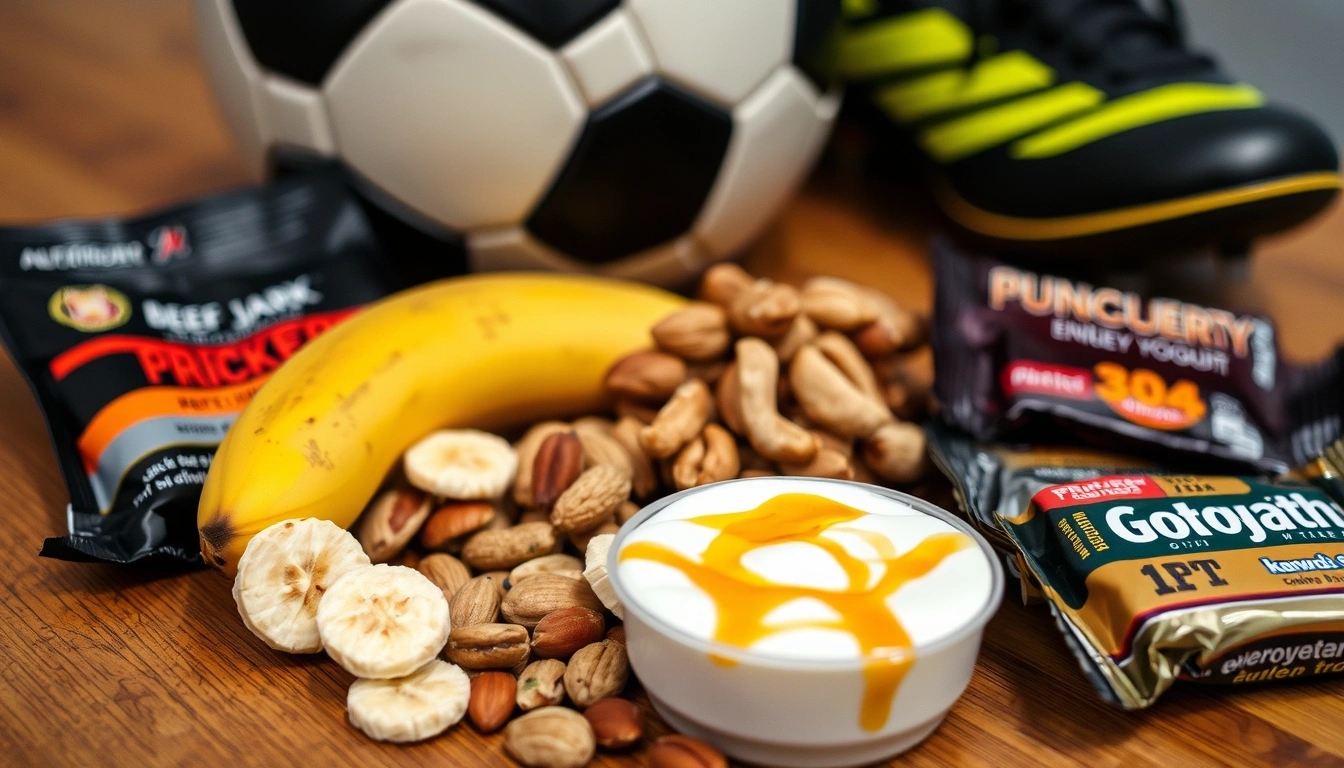
Snack ideas that don’t suck
Alright, let’s be honest here—post-match snacks often get a bad rap. You know, those sad carrot sticks or plain rice cakes that make you feel like you’re munching on cardboard? Yeah, those. Not exactly the stuff of champions. But fear not, because refueling after a Sunday League game doesn’t have to be a total drag or a rabbit’s diet. Choosing the right snack can seriously boost your recovery without making you feel like you’re nibbling on rabbit food. So, here’s the lowdown on some tasty, effective options that actually hit the spot.
First up, carbs are your best mate here. After running around for 90 minutes, your glycogen stores are basically empty, and you want to refill those ASAP. But don’t just grab a candy bar—think smarter. Wholegrain bread with a bit of honey, or a banana with peanut butter, packs in the carbs and a bit of protein to kickstart muscle repair.
| Snack | Why it works | Quick Tip |
|---|---|---|
| Banana & Peanut Butter | Carbs + protein combo, potassium for cramps | Use natural peanut butter, no added sugar |
| Greek Yogurt & Berries | Protein for muscle repair, antioxidants for inflammation | Choose low-fat versions for lighter digestion |
| Hummus & Pita Bread | Plant-based protein + slow-release carbs | Great for vegetarians or if you’re feeling fancy |
| Chocolate Milk | Carbs and protein, plus it tastes like a treat | Go for low-fat to avoid feeling sluggish |
Now, protein is the other side of the coin. It’s the muscle’s best friend, helping to repair all that damage you did sprinting, tackling, and probably tripping over your own feet. But how much? You don’t need to down a steak right after the whistle blows. A small portion of protein, around 15-20 grams, is enough to get the repair party started.
- Hard-boiled eggs: Portable, packed with protein, and no fuss.
- Cheese sticks: Easy to grab, and they pair well with some crackers for carbs.
- Tuna pouch: Surprisingly tasty and loaded with protein.
Look, timing is crucial too. Aim to get your snack in within 30 minutes post-match. Your muscles are like sponges then, soaking up nutrients to recover faster. Waiting too long? You’re basically throwing away all that hard work.
One last nugget of wisdom: don’t be afraid to mix it up. Variety keeps things interesting and ensures you get a broad range of nutrients. And hey, if you find yourself munching on something boring, just remember—it’s recovery fuel, not a gourmet dinner.
So next time you’re done with the game and starving, skip the sad salad and go for snacks that actually work. Your legs (and taste buds) will thank you.
Supplements: Helpful or hype?
Alright, let’s cut through the noise about supplements, especially those flashy protein shakes and recovery drinks that flood the market. You’ve probably seen those Instagram ads where some ripped bloke chugs a neon-colored shake, promising you’ll “recover like a pro” after your Sunday League game. But is it really worth splashing your hard-earned cash on these, or is it just clever marketing fluff? Let’s dive in.
First off, protein shakes aren’t magic potions. Yes, protein is essential for muscle repair and recovery, but guess what? You can get plenty of it from good old-fashioned food—think chicken, eggs, beans, or even a decent sandwich. The shakes are convenient, sure, especially if you’re rushing from the pitch to work or have zero time to prep a meal. But if you’re munching a balanced meal within an hour or two after playing, those shakes might just be an unnecessary expense.
| Supplement Type | Pros | Cons |
|---|---|---|
| Protein Shakes | Quick and easy; good for on-the-go; high protein content | Can be pricey; not essential if diet is balanced; often contain added sugars |
| Recovery Drinks | Replace electrolytes; some contain carbs and protein; convenient | Expensive; ingredients vary widely; some have unnecessary additives |
| Multivitamins | Fill nutrient gaps; support overall health | Not a substitute for real food; overuse can be harmful |
Now, about those recovery drinks — they often promise to replace all the electrolytes and nutrients you lost sweating buckets on the field. While rehydration is crucial, water combined with a balanced snack or meal usually does the trick. Some drinks pack a punch with carbs and electrolytes, which might help if you’re playing several games back-to-back or training intensively. But if you’re just out there for a casual 90 minutes, a banana and some water might be just as effective.
- Tip 1: Don’t rely solely on supplements. They’re called supplements for a reason — they supplement your diet, not replace it.
- Tip 2: Read labels carefully. Some products are loaded with sugar or artificial ingredients that do more harm than good.
- Tip 3: Consider your budget. You don’t need to blow your paycheck on fancy powders to recover well.
To be honest, the supplement world can feel like a bit of a minefield. There’s a lot of hype, and some companies prey on our desire for quick fixes. But the truth? Recovery is mostly about good nutrition, hydration, rest, and listening to your body. Supplements can help fill gaps or provide convenience, but they’re not a silver bullet.
In summary, if you’re a Sunday League warrior looking to bounce back after the match, focus on balanced meals and proper hydration first. If you want to throw in a protein shake or recovery drink for convenience or extra fuel, go ahead — but don’t fall for the marketing spiel that you absolutely need them to improve.
Remember: your wallet and your gut will thank you for keeping it simple.
Common mistakes Sunday League players make
Look, if you’re out there every weekend smashing it on the pitch but still feeling like a soggy rag come Monday, chances are you’re tripping up on your post-match recovery. And no, it’s not just about guzzling water and wolfing down whatever’s in the fridge. Sunday League footie is fun and all, but it’s also a proper workout, so messing up your recovery can leave you dragging in the next match — or worse, sidelined with an injury. Here’s the lowdown on the classic blunders that trip up even the keenest players.
- Ignoring hydration beyond water: Sure, you’re chugging water like it’s your job, but that’s only half the story. After 90 minutes of running around, you’ve lost electrolytes — sodium, potassium, magnesium — and just water won’t cut it. Think of it like trying to fix a leaky bucket by adding more water but ignoring the hole. Sports drinks or homemade electrolyte mixes are your mates here.
- Skipping carbs post-match: Some players think protein is the only star at the recovery party, but carbs are the real MVP. Your muscles’ glycogen tanks are empty after the game, and without carbs, refilling them is like trying to fill a gas tank with air. So, don’t just reach for the chicken breast — load up on pasta, rice, or even a cheeky sandwich.
- Overloading on protein: Yes, protein repairs muscles, but piling on a steak the size of your head right after the match isn’t necessary — or even helpful. Your body can only use so much at once. Balance is key.
Now, here’s a quick table to help you avoid these rookie mistakes and nail your post-match recovery nutrition:
| Mistake | Why it’s bad | Better approach |
|---|---|---|
| Drinking only water | Electrolyte imbalance leads to cramps and fatigue | Include electrolyte-rich drinks or snacks |
| Neglecting carbs | Slow glycogen replenishment, poor energy for next game | Eat carb-rich foods within 30-60 mins post-match |
| Excessive protein intake | Wastes calories, no extra muscle repair benefit | Moderate protein with balanced meals |
And don’t get me started on timing. Waiting hours to eat after the game? That’s a rookie move. The magic window for recovery is roughly within 30 to 60 minutes post-match. Miss that, and you’re basically handing your body a recovery penalty. Think of it like a pit stop in a race; the faster you refuel, the better you perform next lap.
Here’s a quick checklist to keep in mind after your Sunday game:
- Drink 500ml of fluids with electrolytes ASAP
- Eat a carb-protein combo snack within an hour
- Avoid heavy, greasy meals that slow digestion
- Don’t forget a bit of fruit or veggies for vitamins
Finally, one of the sneakiest mistakes? Thinking supplements will fix everything. Protein shakes and recovery drinks can help, sure, but they’re not magic potions. If your diet is rubbish, no powder is going to turn you into Messi. Focus on whole foods first, then consider supplements as a convenience, not a crutch.
So next time you lace up for your Sunday League battle, remember: recovery isn’t just about resting your legs — it’s about feeding your body what it desperately needs. Avoid these blunders, and you might just surprise yourself with how fresh you feel come next matchday. Or, you know, at least less like a zombie.
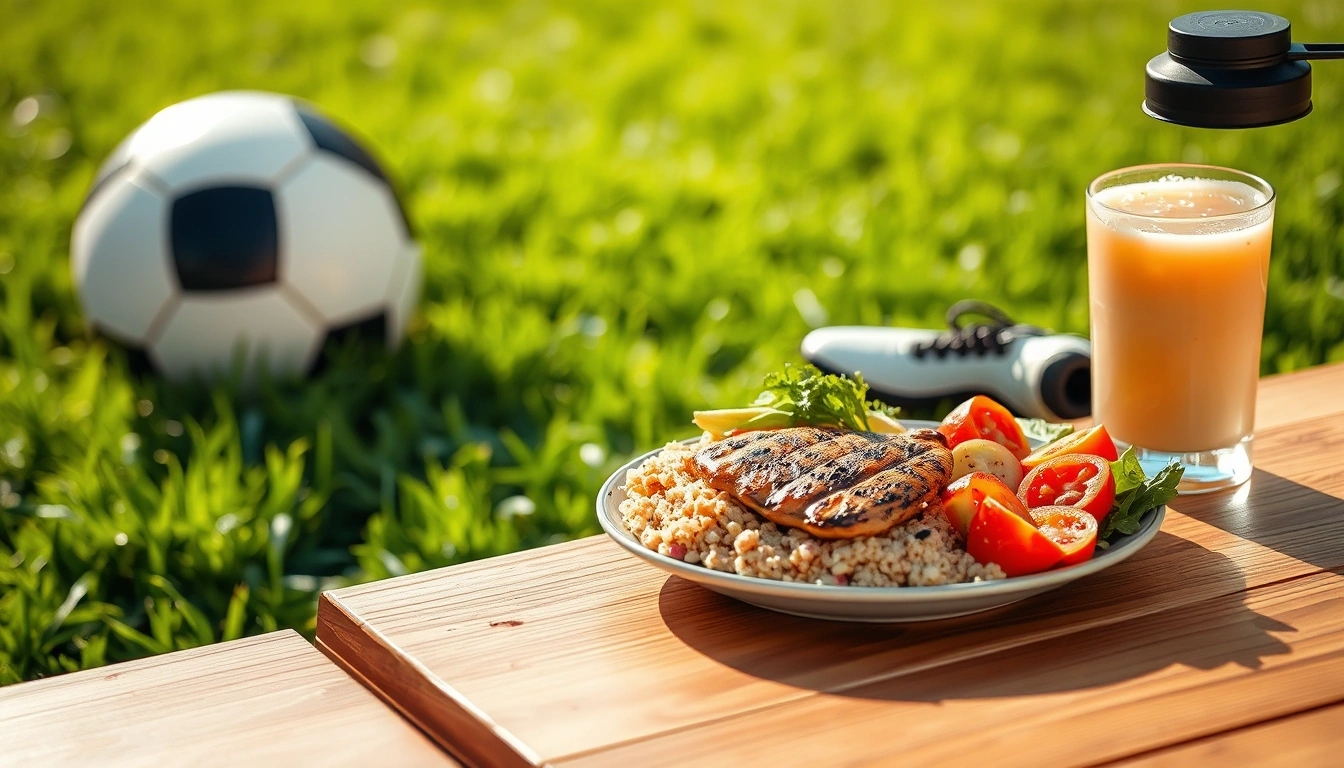
Sample post-match meal plan
Alright, listen up all you Sunday League warriors! After slogging it out on the pitch, you might think you can just flop on the sofa with a bag of crisps and call it a day. Nah, mate. If you want to bounce back like a pro (or at least not feel like you got hit by a bus the next morning), you gotta eat smart. Here’s a simple, practical meal plan that won’t have you breaking the bank or spending hours in the kitchen. Because let’s be honest, most of us just want to eat and chill, not become a gourmet chef overnight.
| Time | Meal/Snack | Why It Works |
|---|---|---|
| Within 30 minutes post-match |
| Kickstarts glycogen replenishment and rehydrates you quickly. Simple carbs + a bit of protein and fats to stop you feeling wiped out. |
| 1-2 hours post-match |
| Carbs for energy, protein for muscle repair, and some fiber to keep your gut happy. Plus, veggies add vitamins and minerals to help recovery. |
| Evening meal (3-4 hours post-match) |
| Omega-3 fatty acids from fish reduce inflammation, complex carbs restore energy, and healthy fats help overall healing. |
Look, you don’t need to go all Gordon Ramsay here. The key is balance and timing. Your body is a bit like a car after a long drive — it needs fuel, oil, and a bit of TLC to keep running smoothly. Ignore it, and you’ll be stuck on the sidelines nursing a groin strain or worse. Plus, this plan is flexible. Hate fish? Swap it for beans or eggs. Not a fan of salad? Steamed broccoli or carrots do the trick.
Now, onto some quick tips, because I know you’re busy blokes and blokettes:
- Prep ahead: Make your sandwiches the night before or pack snacks so you’re not scrambling post-game.
- Hydrate smartly: Water’s great, but toss in some electrolyte tablets if you’ve sweated buckets.
- Don’t skip protein: It’s tempting to just carb-load, but protein repairs those battered muscles.
- Keep it simple: No need for fancy shakes or expensive supplements if your diet’s on point.
Example Shopping List:- Bananas, apples- Nuts (almonds, walnuts)- Yogurt (natural or Greek)- Wholegrain bread- Chicken breast or canned tuna- Mixed salad greens- Sweet potatoes, brown rice- Salmon fillets or canned beans- Olive oil- Electrolyte tablets or drinks
So, there you have it. A no-nonsense, wallet-friendly meal plan that’ll get you back on your feet and ready to smash it next Sunday. Remember, it’s not about fancy ingredients or spending hours cooking — just good food at the right time. Now, go on and give your body the fuel it deserves. You’ve earned it!
How to listen to your body
After you’ve given your all on the pitch, your body doesn’t just quietly sit back and chill — nope, it’s sending you a whole bunch of signals. Some are crystal clear, others feel like a cryptic crossword puzzle. The trick? Learning to decode these messages so you can tweak your nutrition and recovery plan accordingly. Because, let’s face it, ignoring these signs is like trying to drive with a flat tyre — you might get somewhere, but it ain’t pretty.
- Fatigue levels: Feeling wiped out is normal post-match, but if you’re dragging like a zombie for days, that’s your body waving a red flag. It might mean you need more carbs or just better rest.
- Muscle soreness: That ache in your legs? It’s your muscles crying out for protein to repair the damage. Too much soreness? Time to up your protein intake or consider some gentle stretching and foam rolling.
- Thirst and hydration cues: If you’re parched, don’t just gulp water like a camel. Your body needs electrolytes too — sodium, potassium, magnesium — lost in buckets during those 90 frantic minutes.
Now, here’s a quick table to help you match common post-match symptoms with what your body might actually be screaming for:
| Body Signal | What It Means | Nutrition/Recovery Tip |
|---|---|---|
| Heavy legs & sluggishness | Glycogen depletion | Refuel with carb-rich foods like bananas, pasta, or rice within 30 mins |
| Muscle cramps or twitches | Electrolyte imbalance | Hydrate with electrolyte drinks or coconut water |
| Persistent muscle soreness | Insufficient protein or recovery time | Include lean meats, dairy, or plant proteins; consider rest days |
| Headaches or dizziness | Dehydration or low blood sugar | Drink fluids and eat a balanced snack |
Of course, it’s not just about what you eat or drink. Your body’s mood and mental state post-match can also tell you a lot. Feeling irritable or unusually down? It could be fatigue or even dehydration messing with your brain chemistry. Don’t shrug it off — sometimes a good night’s sleep and a balanced meal do wonders.
- Pro tip: Keep a simple post-match journal. Jot down how you feel physically and mentally, what you ate after the game, and how you recovered. Over time, patterns will emerge, and you’ll get a clearer picture of what your body truly needs.
- Listen, don’t guess: Your mate might swear by a protein shake right after the whistle, but if you feel bloated or sluggish after one, maybe that’s not your jam. Tailor your nutrition to your own body’s feedback.
In the end, your body is the ultimate coach — it’s just that its communication style is a bit rough around the edges. So pay attention, experiment a little, and fine-tune your post-match nutrition and recovery until you find that sweet spot where you bounce back fast and feel ready to take on the next game.
Remember: No two bodies are the same. What works for your mate might not work for you, and that’s perfectly fine. The goal is to become fluent in your own body’s language. Once you do, you’ll not only recover better but play better too. Now, isn’t that worth listening for?
Balancing nutrition with busy lifestyles
Look, we all get it — between work, family, social life, and squeezing in that Sunday League match, finding time to whip up a gourmet, nutrient-packed meal can feel like chasing a unicorn. But here’s the kicker: you don’t need to be a kitchen wizard or spend hours prepping to fuel your body properly. Let’s break down some real-world tips that actually work when your schedule’s tighter than your old football boots.
Keep it simple, not sorry
Forget complicated recipes with a gazillion ingredients. Focus on easy, wholesome foods that you can grab or throw together in minutes. Think pre-washed salad bags, canned beans, rotisserie chicken, or even a handful of nuts and fruit. It’s not about perfection — it’s about getting the job done.
| Quick Nutrition Staples | Why They Work |
|---|---|
| Greek yogurt | High protein, easy to eat on the go |
| Wholegrain bread or wraps | Good carbs for energy and recovery |
| Pre-cut veggies | Fiber and vitamins without the hassle |
| Boiled eggs | Protein-packed and portable |
| Frozen berries | Antioxidants and easy to store |
Meal prep isn’t just for pros
If you can spare an hour or two on a Sunday, batch cooking can be a lifesaver. Roast a bunch of veggies, cook some rice or pasta, and grill chicken breasts or tofu. Portion it out into containers, and boom — you’ve got ready-made meals for the week. No, it’s not glamorous, but it beats starving or grabbing a greasy takeaway after a match.
- Tip: Use slow cookers or instant pots to reduce hands-on time.
- Tip: Double recipes and freeze half for lazy days.
Snack smart, not hard
Post-match hunger hits hard and fast. Instead of diving into whatever’s closest (looking at you, chips and crisps), keep some nutritious snacks handy. Protein bars, trail mix, or even a banana with peanut butter can tide you over until you eat properly.
Smart Snack Ideas:- Almonds & dried fruit mix- Cottage cheese with pineapple- Rice cakes with hummus- Chocolate milk (yes, really!)
Hydration hacks
Water’s great, but after 90 minutes on the pitch, you’ve lost more than just fluids. Electrolytes matter, so consider drinks that replace sodium and potassium — or simply add a pinch of salt and a squeeze of lemon to your water bottle. No need to splash out on fancy sports drinks unless you’re into that sort of thing.
Final thoughts: It’s all about realistic, sustainable habits. Don’t beat yourself up if you can’t eat perfectly every day. The goal is progress, not perfection. Even small changes add up and will help you recover faster, feel better, and keep smashing those Sunday games — without turning your kitchen into a second job.
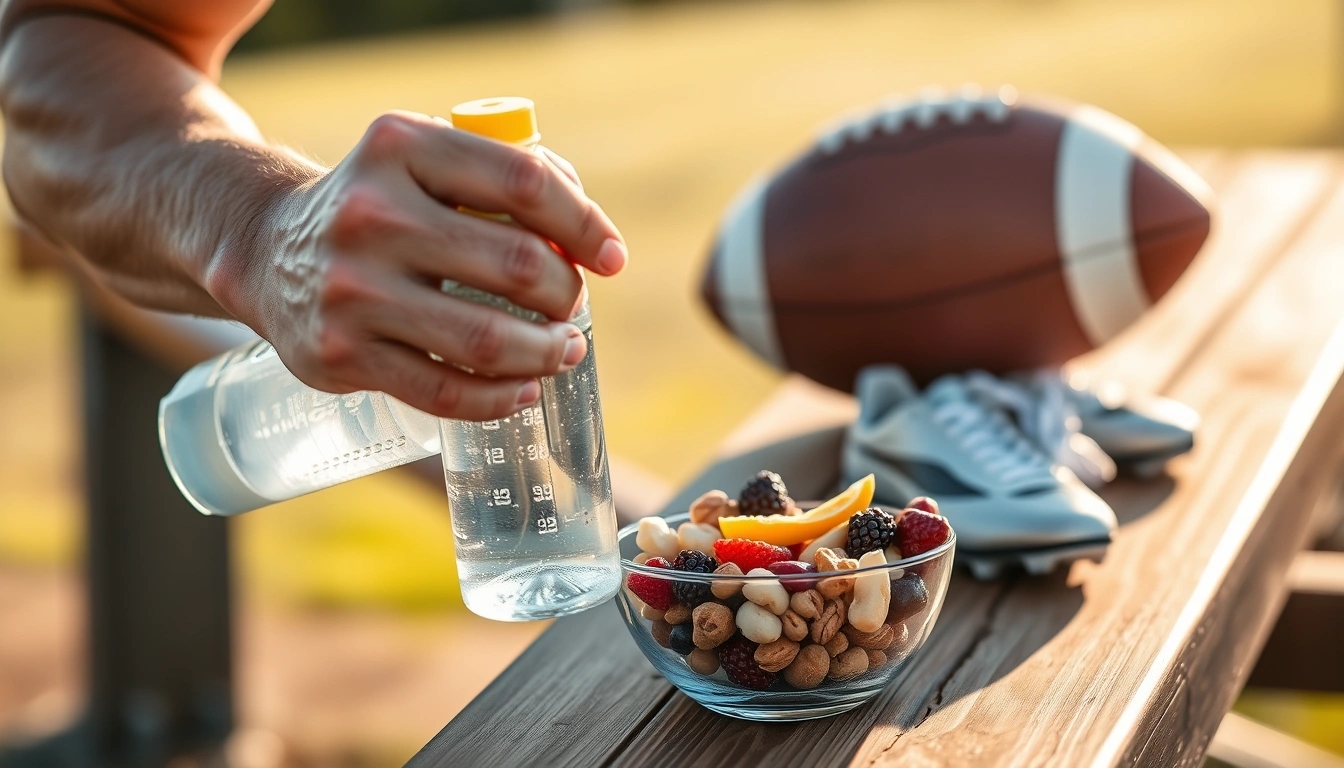
Long-term benefits of good post-match nutrition
Look, I get it. After a gritty Sunday League match, the last thing on your mind might be meticulously planning your post-match meal. You’re probably more interested in collapsing on the couch or grabbing a pint with your mates. But here’s the kicker — those few minutes and choices you make right after the final whistle can seriously change the game for your body in the long run. And no, I’m not just talking about feeling less knackered next week (though that’s a nice bonus). I mean staying fit, dodging injuries, and actually enjoying footie season after season without hobbling around like an old geezer.
Why bother with consistent recovery habits?
- Injury prevention: Proper nutrition helps repair tiny muscle tears and reduces inflammation. Skip this, and you’re basically throwing a dart blindfolded at the “injury” board.
- Maintaining fitness: Your muscles need fuel to rebuild stronger. Without it, you risk losing gains and feeling sluggish come next match day.
- Energy reserves: Good post-match nutrition tops up your glycogen stores, so you’re not running on empty next time you lace up.
Now, before you roll your eyes thinking this sounds like some fancy pro athlete nonsense, remember that Sunday League players often juggle full-time jobs, families, and a social life. So, these habits don’t have to be rocket science or require a nutritionist on speed dial. It’s about simple, consistent actions that add up.
| Benefit | What happens without good nutrition? | How good nutrition helps |
|---|---|---|
| Muscle Repair | Muscles stay sore longer, risk of strains increases | Protein intake aids muscle recovery and growth |
| Energy Restoration | Fatigue lingers, performance dips in next game | Carbs replenish glycogen, quick energy boost |
| Immune Support | Higher chance of getting sick, missing matches | Vitamins and minerals from balanced meals bolster immunity |
And here’s a little secret: the body doesn’t forget. Consistently ignoring post-match nutrition might not bite you immediately, but over weeks and months, it piles up. You start feeling worn down, niggles turn into injuries, and suddenly you’re the one watching from the sidelines instead of scoring goals.
“But I’m too busy!” you say? Fair enough. Life’s hectic. But even a quick sandwich with lean protein and a banana can make a massive difference compared to grabbing a random bag of crisps or nothing at all. And hydration? Don’t just guzzle water like it’s going out of fashion — toss in some electrolytes to really bounce back.
- Tip: Prepare simple recovery snacks ahead of time — think boiled eggs, yogurt with fruit, or peanut butter on wholegrain toast.
- Tip: Make it a team thing. Encourage your mates to bring nutritious snacks too. Peer pressure works wonders.
To wrap it up, think of post-match nutrition as an investment, not a chore. The dividends? Less downtime, more game time, and a body that keeps up with your passion for football year after year. So next time you’re tempted to skip that post-match meal, remember: your future self (and your knees) will thank you.
Frequently Asked Questions
- Why is post-match nutrition so important?
Think of your body as a car that just finished a long race — it needs refueling and maintenance to keep running smoothly. After a Sunday League game, your muscles are depleted, and your energy tanks are low. Eating the right foods helps replenish glycogen, repair muscle damage, and kickstart recovery so you’re ready for the next match without feeling like a rusty old engine.
- Is drinking water enough for rehydration?
Water is great, but it’s only part of the story. During 90 minutes of running, you lose not just water but also vital electrolytes like sodium and potassium. Rehydrating with a mix of fluids that replace these minerals—think sports drinks or natural options like coconut water—helps avoid cramps and keeps you sharp on the pitch.
- How soon should I eat after the match?
Timing is a game-changer! Aim to eat within 30 to 60 minutes post-match to maximize glycogen replenishment and muscle repair. This window is like a golden ticket where your body is most receptive to nutrients, so don’t miss it if you want to bounce back faster.
- What’s the ideal balance of carbs and protein after playing?
Carbs are your recovery MVP because they refill your energy stores, while protein acts like the construction crew, fixing muscle damage. A good rule of thumb is a 3:1 ratio of carbs to protein — for example, a chicken sandwich on wholegrain bread or a smoothie with fruit and yogurt.
- Are protein shakes necessary for recovery?
Not necessarily. While protein shakes can be convenient, especially when you’re on the go, whole foods often provide a better nutrient mix. Don’t fall for marketing hype—focus on balanced meals first, and use shakes as a handy backup if needed.
- What are some quick and effective post-match snacks?
Forget boring snacks! Think tasty and nutritious options like banana with peanut butter, Greek yogurt with berries, or a handful of nuts and dried fruit. These choices pack a punch in carbs, protein, and healthy fats without turning you into a snack rabbit.
- How can I balance good nutrition with a busy schedule?
Busy life? No problem. Prep simple meals in advance, keep healthy snacks handy, and opt for quick recipes that don’t require a chef’s degree. Remember, consistency beats complexity — small, smart choices add up to big recovery wins.
- What common mistakes should Sunday League players avoid?
Skipping post-match meals, relying solely on water for hydration, and ignoring your body’s hunger signals are rookie errors. These missteps delay recovery and leave you feeling sluggish next time you hit the pitch. Listen to your body and fuel it right!

